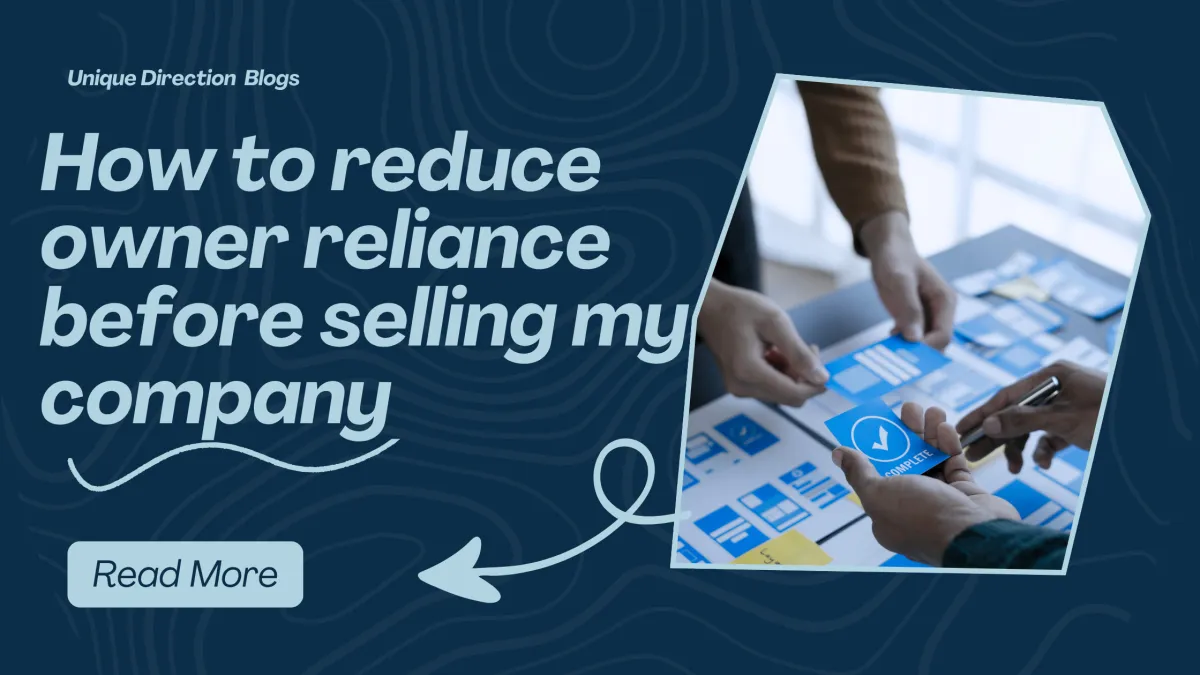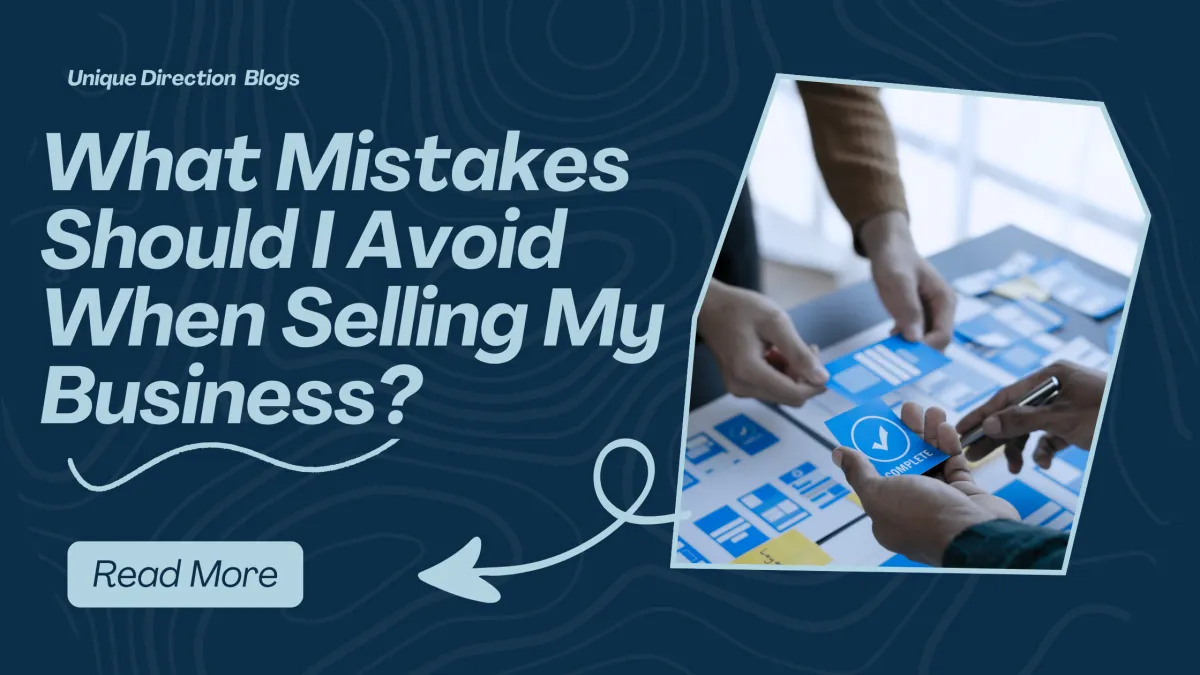How Can You Take the Cash in Bank When You Sell Your Business?
Published on: 03/11/2025
Thinking about how to handle cash in the bank during a business sale? Discover how it affects valuation, deal structure, and your final payout — plus how to plan strategically.
sellmybusiness
What Is Due Diligence When Selling a Company?
Published on: 01/10/2025
Preparing your business for sale? Learn what serious buyers really look for — and how Unique Direction’s Deal Ready Accelerator turns your business into a premium asset.
sellmybusiness
How to reduce owner reliance before selling my company
Published on: 02/08/2025
Owner dependence can kill deals or reduce valuations. Learn how to reduce reliance on yourself before selling — and why buyers pay more for businesses that can run without the founder.
sellmybusiness
What Mistakes Should I Avoid When Selling My Business?
Published on: 16/07/2025
Selling your company? Avoid these common mistakes that reduce value or kill deals. Learn how Unique Direction helps founders exit on their terms — without costly missteps.
sellmybusiness




